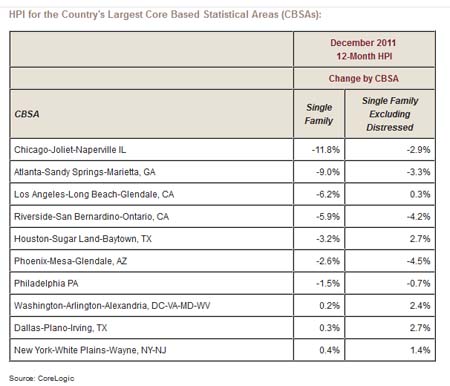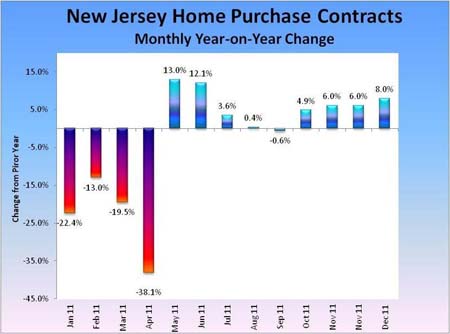From HousingWire:
More than 40 states to sign foreclosure settlement
More than 40 states will sign a settlement with the top-five mortgage servicers over alleged foreclosure abuses that arose more than one year ago, Iowa Attorney General Tom Miller said in a statement Monday night.
Last week, Miller extended the deadline to Monday for states wanting to sign the deal with Bank of America ($7.97 0.13%), Wells Fargo ($30.20 -0.43%), Citigroup ($33.30 -0.24%), JPMorgan Chase ($38.14 -0.14%) and Ally Financial ($22.95 0.03%).
“The sign-on deadline for the proposed joint state-federal mortgage servicing settlement passed Monday with more than 40 states signing on,” Miller said “This enables us to move forward into the very final stages of remaining work.Federal and state officials, as well as representatives from the banks, continue to address matters that they must complete before finalizing any settlement.”
Throughout the day, those representing states hardest hit by the foreclosure crisis signaled they are still working on the details of the settlement.
“We’re closer,” a spokesperson for California AG Kamala Harris said.
“My office is continuing to review the intricate draft settlement terms and advocating for improvements to address Nevada’s needs,” said Nevada AG Catherine Cortez Masto in a statement. “Receipt of important state specific information is necessary to make our determination and my office is still in discussions regarding that information.”
Florida AG Pam Bondi said she “remains involved in the settlement discussions in order to reach the best resolution for Floridians and all Americans.” She signed a joint letter with other republican AGs in 2010, saying a settlement that would involve principal reduction creates a moral hazard and lead to more strategic defaults.
…
An official in one AG office said an announcement is expected at the end of this week at the earliest.
From Bloomberg:
California, N.Y. Are Among Fewer Than 10 Mortgage Deal Holdouts
California and New York’s attorneys general haven’t signed on to a proposed settlement with five banks over foreclosure practices that has won the support of more than 40 states.
California’s Kamala Harris and New York’s Eric Schneiderman, who have been some of the most outspoken in pushing for changes to the deal, are among those who hadn’t joined the agreement as of yesterday’s deadline for states to decide. More than 40 states signed on to the accord, according to Iowa Attorney General Tom Miller, who is helping to lead talks with the banks.
“Adding more numbers probably improves the political dimension of the settlement from the standpoint of the attorneys general,” said Ken Scott, a Stanford University law professor. “If you can say there were only a handful of diehards that didn’t sign on, that gives you some political protection.”
…
Bank of America Corp., JPMorgan Chase & Co. and Wells Fargo & Co. made a last-minute demand that New York drop claims filed against them Feb. 3 as a condition of the settlement, a person familiar with the matter said.
The push by the three banks raised a new obstacle in getting Schneiderman’s support for the deal, said the person. New York, along with California, Nevada and Delaware said late yesterday they hadn’t signed on to the settlement.
New York sued Bank of America, JPMorgan and Wells Fargo in state court in Brooklyn, saying their use of a mortgage database known as MERS led to improper foreclosures. Schneiderman said the banks’ use of the Mortgage Electronic Registration Systems database misled homeowners, undermined foreclosure proceedings and created uncertainty about ownership interests in properties.



